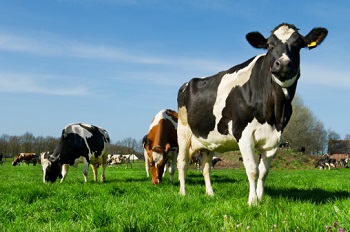Jun 3 2014
The Centre for Process Innovation (CPI) are working with CompanDX Ltd, Public Health England and Sapient Sensors Limited to develop a portable testing device which would be capable of detecting bovine tuberculosis in cattle in just a matter of minutes. The device will mean that appropriate measures could be taken more quickly to limit the spread of the infectious disease – which is one of the biggest challenges facing the cattle farming industry.

Currently it can take up to a week to identify bovine TB, following two separate visits by a veterinary physician and further analysis in a laboratory. The new £1.1 million project, co-funded by the UK’s innovation agency, the Technology Strategy Board, will aim to create a small hand held device that veterinarians can use to give an almost instant diagnosis from a simple blood test at farm sites.
The three year project will use CPI’s scale up expertise to prototype a bespoke, printed sensor which will identify 'biological markers' – or molecules indicative of a specific disease in the blood. The sensor is underpinned by Sapient Sensor’s diagnostic sensor technology, and will indicate the presence of bovine TB and could help spot the disease from a blood test rather than the time consuming skin test currently in use.
Currently sensors for these applications are produced using silicon technology, CPI will advance the device technology by printing a prototype onto plastic surfaces. The transition to plastic electronics will mean that as well as providing a rapid, accurate diagnosis, the new device will be far more cost effective than the current procedure, as it is single use and disposable with no costly repeat testing.
This means, if cattle are infected, crucial disease control decisions could be made early, before the disease spreads or worsens. The device could also be used to provide important reassurance to farmers about the health of their cattle, before they sell for milk or beef. In addition, reducing the potential levels of bovine tuberculosis in the environment could help to resolve TB issues in badger populations, potentially reducing the need for badger culling.
Jon Helliwell, Director of Printed Electronics at CPI said, "CPI and the consortium are looking to develop an innovative solution for the testing of Bovine TB, which is one of the UK’s biggest rural challenges today. The development of a low cost, disposable printed sensor will revolutionise current testing methods and is a huge step in dealing with the problems that the disease creates”.
In the last ten years bovine TB has cost the UK taxpayer £500 million, from January to August last year more than 22,000 cattle were slaughtered because of bovine TB. Bovine TB is caused by the bacterium Mycobacterium bovis (M. bovis), which can also infect and cause TB in badgers, deer, goats, pigs, dogs and cats, as well as other mammals, including humans.